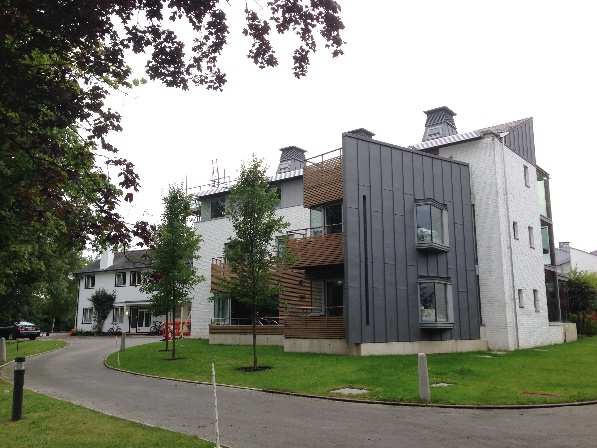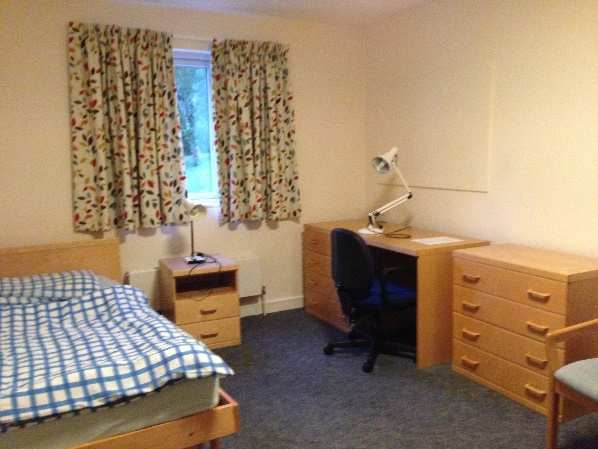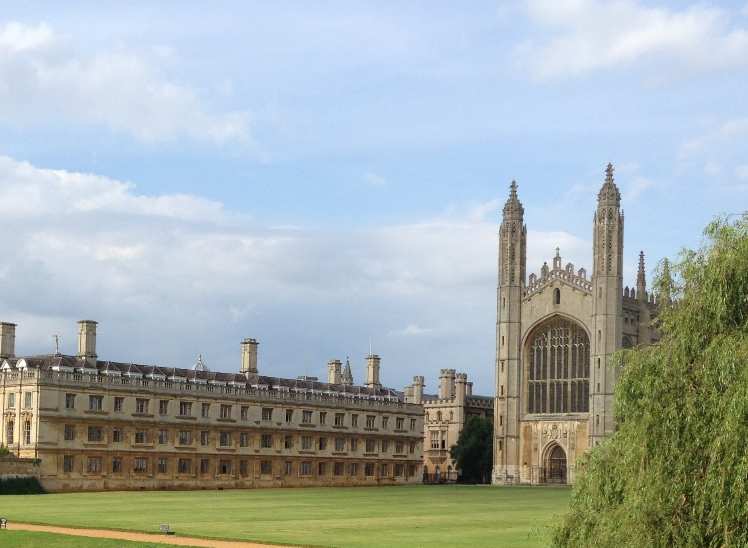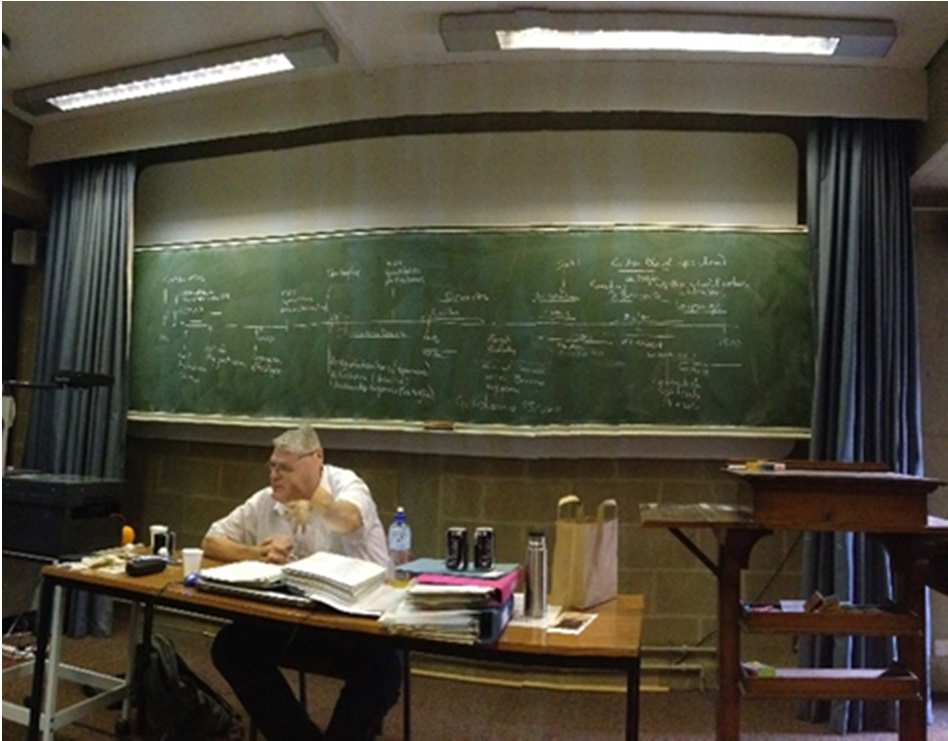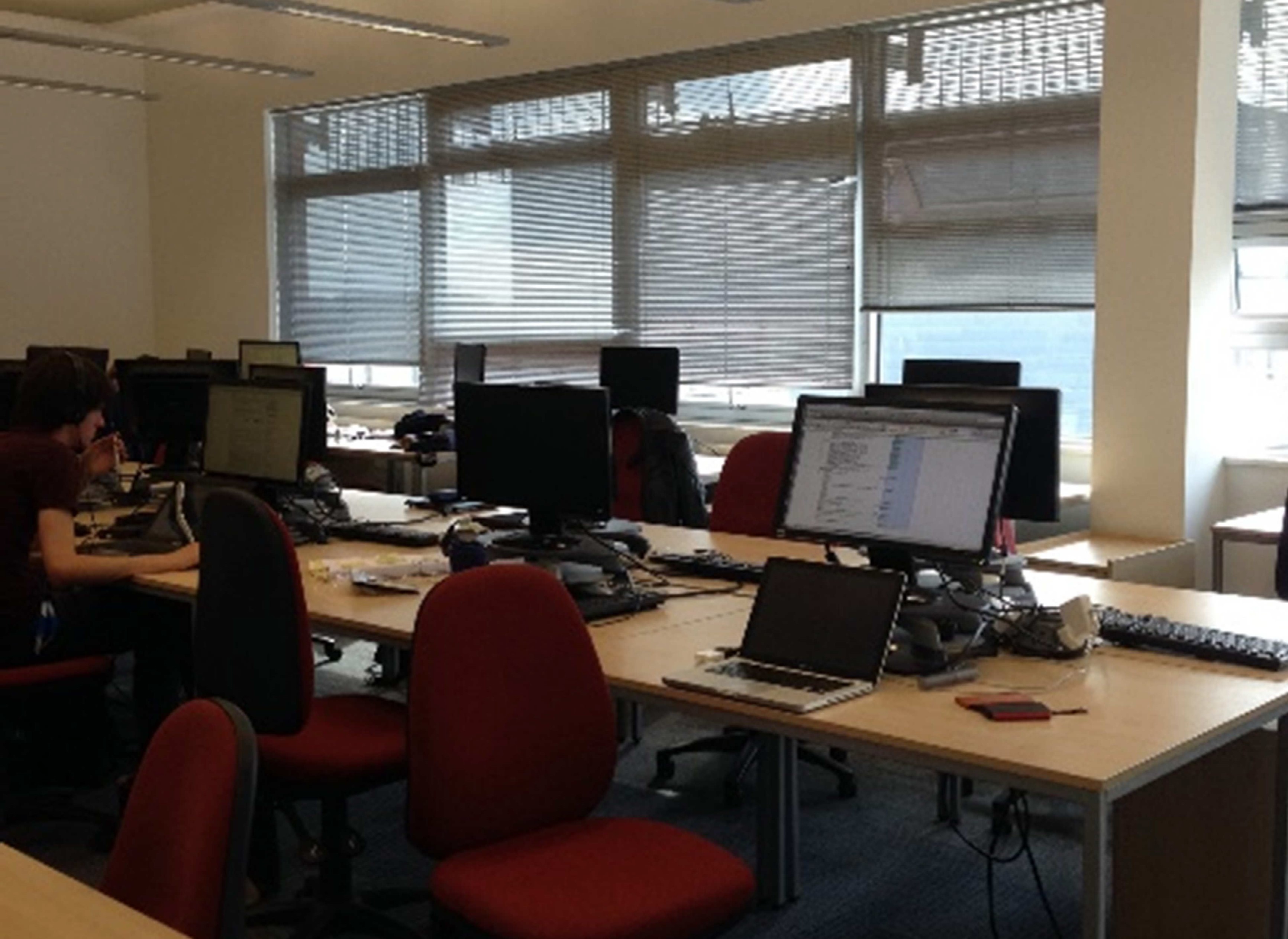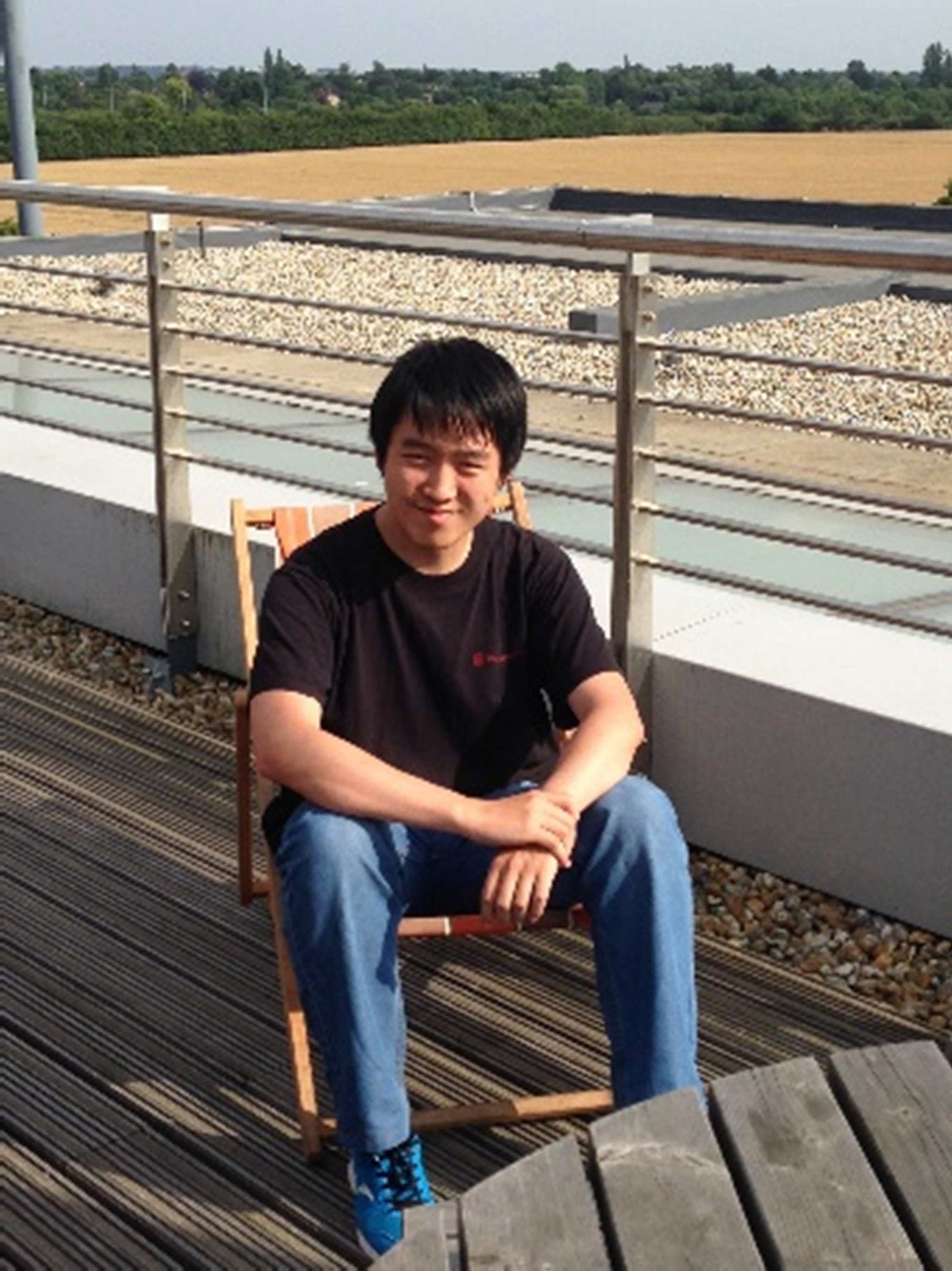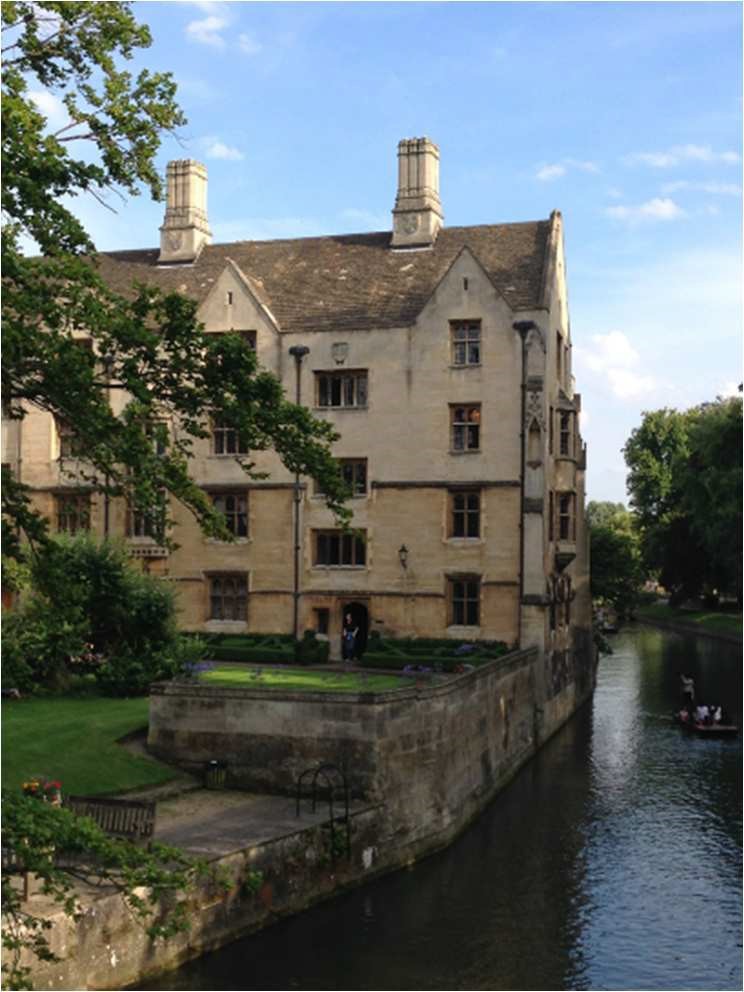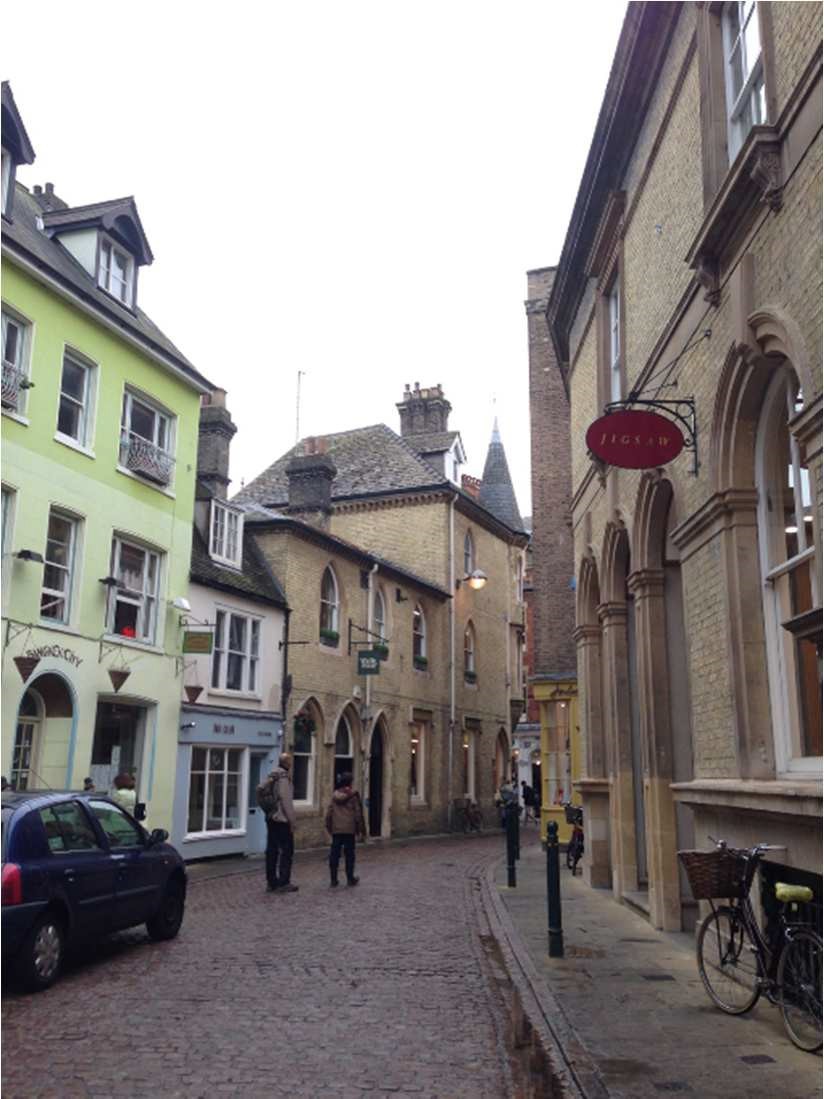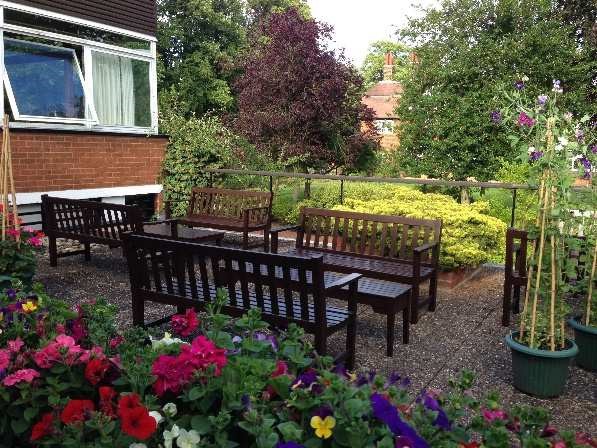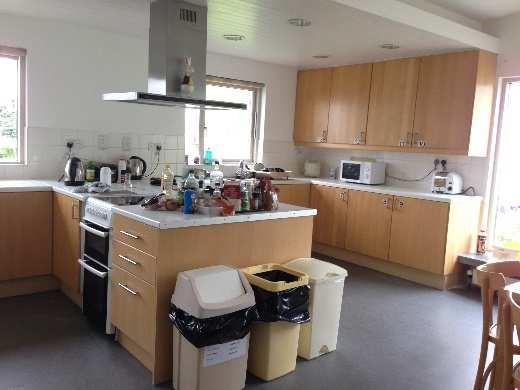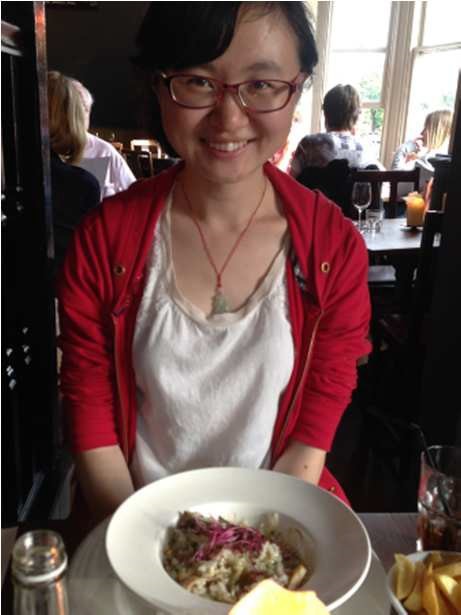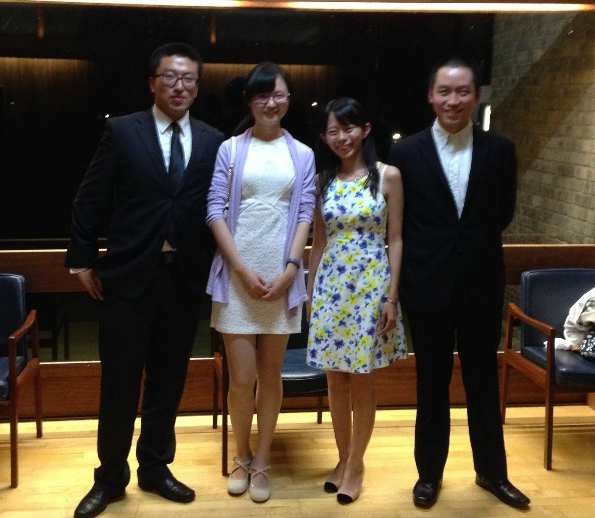- HOME
- About AIS
- Study Abroad Program
- Clare Hall, University of Cambridge Summer Visiting Student Program Report
Clare Hall, University of Cambridge Summer Visiting Student Program Report
2014 Academic Year
Yuzuki Nagakoshi: Doctoral Student, Department of Advanced Interdisciplinary Studies, Graduate School of Engineering, The University of Tokyo
Objectives
My 40-day visiting studentship in Clare Hall, Cambridge University can be roughly divided into two parts: academic research and participation in the summer school. The two activities had two different objectives, both related to each other, as listed below.
Academic research
Topic: The Duplicated (Triplicated) Patent Invalidation System in Japan and the United Kingdom - a Comparative Study
The objective of the research is to better understand the procedural patent law of the United Kingdom in comparison with the Japanese law. Although the legal system between the two countries are very different, interestingly, the procedure of patent invalidation is very similar to each other. The Japanese patent invalidation system has been going through rapid change since the mid 90's, and from a retrospective perspective, the revision lead to increasing similarities between the two countries. After the law revision in Japan which will be enacted in 2015, the similarity would further increase. Thus it is of crucial important as a Japanese scholar to understand the invalidation procedures in the United Kingdom in comparison with the Japanese system, in order to gain multidimensional and comprehensive perspective of our current and future system. Nevertheless, not enough research has been done on British-Japanese comparison, let alone the comparative study between the patent invalidation system, although it deserves much more attention.
Summer school
Topics:
1. History of Science during the Scientific Revolution
2. History of Science during Enlightenment
3. Economics and Public Policy
The overall objective of the summer school was to better understand the field of history of science, economics, and public policy, and reorganize my thoughts in English. As for the courses in the history of modern science in the west, the objective was to get a large picture of the history of science and to understand the relation between the development of the patent system and the development of science. Another minor objective was to get used to the language used in the debate, as my scientific vocabulary was very limited.
As for the Economics and Public Policy course, one of my objective was to get used to the vocabulary in English, because I studied both fields in Chinese, and it was not very handy to communicate even with Japanese scholars in this field. The other objective was to get acquainted with people with common interest, and get to know how people around the world view their world.
Other Objectives
Apart from my abovementioned objectives, I had a few other things I aimed to achieve during my time in Cambridge. The first was to overcome the fatigue which occurs when speaking English for the whole day for more than one week. Although I had no problem communicating in English in general, I have observed my English ability to decline rapidly after speaking in English for 7 consecutive days due to fatigue. This caused my business trips to be less efficient if it exceeds the 7 day limit, and thus I wanted my brain to be more comfortable with speaking English.
The second was to meet new people in my field in Cambridge. Most of the people whom I knew in my specific field was from the United States, China/Taiwan and Germany, and I was always curious to know what the people from the rest of the world was thinking.
Achievements
Academic Research
During my stay in Cambridge, I worked on the abovementioned research topic and have been writing a paper on it. It is still half-way done, but I am planning to finish and if possible, publish it.
I would like to thank all the distinguished scholars from Cambridge and London for their advice and guidance on my research in Cambridge. During my stay in Cambridge, I could meet and discuss my research with the below-listed scholars from Centre for Intellectual Property Law and Information Law.
Professor William Cornish
Director: Professor Lionel Bently
Dr. Kathy Liddell
Ph.D candidate Ms. Yin Harn Lee
Ph.D candidate Ms. Julia Powles
Also, I have visited Professor Sir Robin Jacob of University College London, who is also a retired judge from the court of appeals.
Summer School
Concerning the courses on the history of science, I have obtained a better understanding of the historical background of the patent system and deepened my understanding of the concepts in patent law.
I learned a lot about how scientific discoveries are made. For example, Isaac Newton found a way to understand the gross property of universal gravity, but he could not explain what it was. Up until now, no one can explain what it is, but we all know it exists and we can calculate it, therefore can use it in our favor. The transition from the question "what is it?" to "what are the characteristics of it?" is one of the feature of the Enlightenment. I found this very interesting, as it helped me understand a concept in modern day patent law. In describing an invention as a patent, some inventions can only be claimed by the process of manufacture.
The focus of the class was also on how we should evaluate the inventions or discoveries from the perspective of a person living in the same time, not from our current perspective. It is the exact idea of patent law, where on the evaluation of the obviousness of the patent, the patent examiners try to avoid hind-sight, and tries to evaluate the inventiveness based on the date of filing. I learned that many of the discoveries seem quite obvious, wrong or vague, but in those days it was truly a new finding and all the wrong hypothesis led to true hypothesis.
Another interesting fact I found was about industrial revolution. In the 18th century, great scientists did not look into engineering. However in the U.K., there were a lot of educated rural industrial workers. These are the people who made the modification of the steam engine little by little. Educated workers were also available in Prussia, but they had too much restrictions and little space to make minor improvement themselves. Other countries did not have education for workers. It reminded me of a similar explanation of the industrial development in Japan, and how Japanese companies won international competition.
In short, the lecture made me realize the significance of scientific discoveries and technological development, and the importance of the political/ religious/ historical/ educational environment on achieving such great results.
As to the course on public policy and economics, the lectures provided a very good introduction into the welfare policies and how to measure the positive and negative effects, by focusing on two keywords: efficiency and fairness. In addition to the lectures, there was an opportunity for each student to give presentations on one public policy issue. Through that presentation I could see that people from all around the world have different social issues and different solutions, which I found very interesting.
Other Achievements
As I have assumed, my English ability declined due to fatigue after spending some time in Cambridge. However, after 3 weeks, my brain somehow got used to using English and then it became very comfortable again. Torturing the brain once in a while was not a bad idea. I also got the habit of reading for pleasure in English.
Concerning my career-networking, in addition to the abovementioned IP scholars, I visited the Institute for Manufacturing and met Professor David Ibbetson and Ph.D candidate Mr. Elliott More. The main focus of the institute is engineering, but it also has technology management researchers. I found it very interesting as it seemed similar to RCAST.
In order to better understand the university startups in Cambridge, I visited Idea Space, which occupies a floor of a building on campus, where start-ups rent offices or desks. Some receive investment from Cambridge University. I interviewed an intern, Mr. Meng Zhang from one of the companies, and got the impression that Idea Space not only is a place to rent a desk, but to know other start-ups better and to enjoy a stimulative environment. Mr. Zhang was offered a job position from a company with which his company shared rooms.
To Prospective Visiting Students
Here are some casual advices for prospective visiting students, which I would have wanted before I went to Cambridge. I hope at least some parts of this proves useful.
- Be sure to get health insurance. It is brutally expensive to seek medical assistance in the UK. I caught a cold and it cost me 65 pounds. Luckily my insurance covered it.
- Don't change more money than you need at the airport. The exchange rate is bad. You can pay everything by credit card, so just change what the school requires (200 pounds in my case). If in need for small money, do it in the city center of Cambridge. I heard it is much cheaper to exchange money in Japan.
- Take a cab to Clare Hall when you arrive from London. You can't walk from the railway station nor the bus station with big luggage. It took me an hour and half.
- Rent a bike. It cost me 50 pounds for 40 days. It takes 15 minutes by walk to the city center, and the bus is not reliable and more expensive than renting a bike. Also I think it is safer if you ride a bike late at night than walking. Very few people are out at night near Clare Hall.
- Eat at the college dining room. You'll meet a lot of people there. Even distinguished professors are very friendly, and they will try to connect you with people of your field.
- Eat at restaurants. This is contradictory to what I have just wrote, but there are some nice restaurants in town. Try the good stuff once in a while.
- Send emails to relevant professors. They have email addresses on the webpage, and may reply to you (rather nicely). But do this as early as possible, because one meeting might lead to another, and it takes time to meet people especially because it is holiday season.
- Prepare in advance to explain what you have done so far in your field in English. If you have a paper in English, that is even better.
- During the summer school, be sure to sit in front, and become recognized by other students and professors. Make comments and ask questions. It is your responsibility to maximize what you gain from the course. One time I thought the students were asking too much irrelevant questions (and the questions occupied a whole hour in a 75 minute class) and I asked the professor to take questions later and give the lectures first without stopping. He kindly agreed. The lecture became drastically better, and other students came to me after class telling me that I was brave to make the suggestion.
- During the plenary lecture series (the lecture where you sit in a big hall and listen to interdisciplinary lectures), be brave to ask questions. This is one of the rare opportunities where you can ask stupid questions in a grammatically incorrect English, embarrassing yourself in front of everyone, with most of whom you fortunately would not see each other ever again. It seems risky to ask questions in international conferences because the people around you pay attention to your questions, and if it is stupid, your risk your reputation as a scholar. In the summer school, you do not risk anything. I asked a question in front of 200+ people, and it was not too successful. I became nervous and mentioned things I did not mean to. But, I left all my embarrassment in Cambridge, without my reputation being damaged, and brought back courage and confidence to perform better in important meetings. Make as much mistakes as you can.
- Stock your emergency food in the kitchen. The dining room is closed during the weekend, and if you get sick during the time, you are stuck in your room without any food (unless someone nice will help you). The city center is more than 15 minutes away from your bedroom.
- Talk to your neighbors. They are usually friendly and nice. You will have far more interesting ways to spend your evening than being alone in your room.
- Don't get too close with other Japanese people. You will perhaps feel very cozy among them, but you are narrowing your learning possibilities yourself if you stay with them all the time. Maintain equal distance with Japanese and non-Japanese friends.
Forget all the advice. Get out of your comfort zone. Just enjoy!
(Aug. 27th, 2014)




